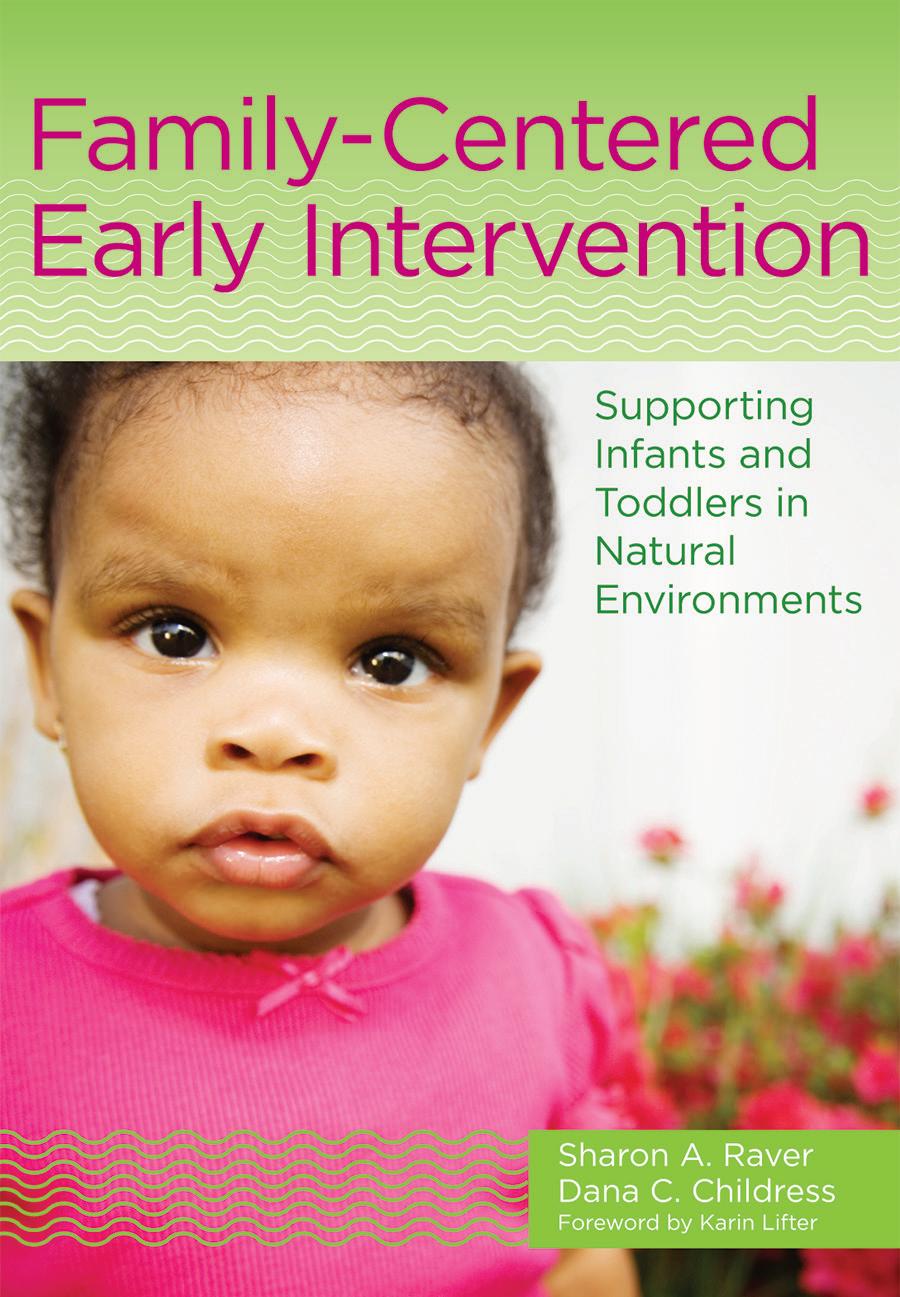
2 minute read
Special Education Services
ORDER EXAM COPY

CONTENTS
I. FOUNDATIONS OF EARLY INTERVENTION 1 . Early Education and Intervention for Children from Birth to Three 2. Collaboration and Teamwork with Families and Professionals II. SUPPORTING FAMILIES IN NATURAL ENVIRONMENTS 3. The Individualized Family Service Plan Process 4. Implementing Intervention in Everyday Routines, Activities, and Settings III. ENHANCING INFANT AND TODDLER DEVELOPMENT AND PARTICIPATION 5. Developing Positive Social-Emotional and Communication Skills 6. Acquisition and Use of Knowledge and Skills 7. Using Appropriate Behaviors to Meet Needs IV. SUPPORTING CHILDREN WITH DIVERSE ABILITIES 8. Infants and Toddlers with Autism Spectrum Disorder 9. Infants and Toddlers with Sensory Disabilities 10. Infants and Toddlers with Cognitive and/or Motor Disabilities

Family-Centered Early Intervention Supporting Infants and Toddlers in Natural Environments
By Sharon A. Raver, Ph.D (Old Dominion University), Dana C. Childress M.Ed. (Virginia’s early intervention professional development team), with invited contributors
”An excellent text for both university students and
entry-level and experienced early intervention practitioners . . . a true example of research to practice.” —Rachel Moyer-Trimyer, IDEA Part C Specialist, Texas Early Childhood Intervention; lecturer at The University of Texas at Austin
A must for future early interventionists, this introductory text prepares professionals to support infants and toddlers with special needs and their families—and address the OSEP child outcomes so critical to a program’s success. Focusing on the specific needs and challenges of children from birth to three, the book gathers more than a dozen expert contributors with proven expertise in helping children who have or are at risk for developmental delays. Early interventionists will learn recommended practices for family-centered, evidence-based intervention and team collaboration, knowledge they’ll use for the rest of their careers to ensure the best possible outcomes for infants and young children. Aligned with DEC recommended practices and CEC standards!
LEARN THE FOUNDATIONS OF: • Addressing the three OSEP Child Outcome Indicators: positive social-emotional skills, acquisition and use of knowledge and skills, and using appropriate behaviors to meet needs • Developing and implementing IFSPs • Weaving intervention services into a family’s established routines • Empowering parents to guide and support their child’s development • Conducting interventions that support motor, cognitive, socialemotional, communication, and adaptive skills • Working in effective teams with professionals from diverse disciplines • Meeting the specific needs of children with all disabilities and/or risk areas, including autism, sensory disabilities, and cognitive and/ or motor disabilities
STUDENT-FRIENDLY FEATURES: “Best Practice Highlights” with specific intervention suggestions, helpful discussion questions, case studies in each chapter that illustrate the recommended strategies.





